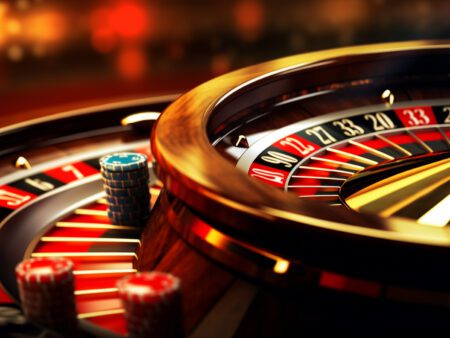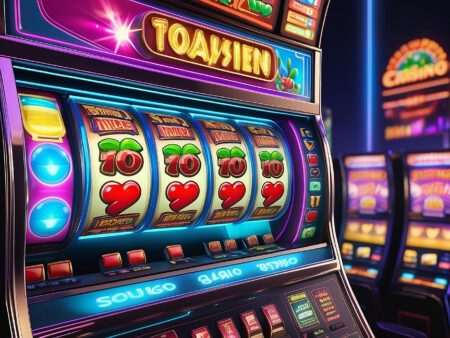Uncover the psychological aspects and strategic insights of a successful online roulette player. Discover the game’s mechanics, embrace randomness, understand the house edge, and learn to combine logic with intuition.
Inside the Mind of a Roulette Player: Psychology and Strategy
Imagine standing in a bustling casino, eyes sweeping across the grandeur around you. Amid the clinking sounds of slot machines and the symphony of excited chatter, one game stands out from the rest – roulette. From its alluring spinning wheel to the breathtaking suspense as the ball bounces unpredictively, each moment at the roulette table offers a thrill that’s hard to beat.
But what does it truly take to play roulette successfully online? Could there be more to the game than apparently chaotic luck? This article takes you inside the mind of a seasoned roulette player, delving deep into the psychology and strategy of this iconic game.
Understanding the Roulette Wheel
Before setting sail on the sea of bets, one must understand the roulette wheel, as its layout and mechanics form the foundations of all strategies. The wheel varies slightly between American and European versions. The former has 38 pockets (1-36 numbers, a single zero and a double zero), while the latter has 37 pockets (1-36 numbers, and a single zero). This discrepancy not only alters the outcome probabilities but necessitates the adaptation of strategies according to the version.
Embracing Randomness and Probability
Any roulette player worth his chips knows the game is a shining beacon of randomness. Yet, human psychology often leads us to perceive patterns – even when they don’t exist. This phenomenon, known as ‘the gambler’s fallacy,’ can sometimes make players mistake independent spins on the roulette wheel for dependent events. To prevent this cognitive trap, one must acknowledge and embrace the randomness inherent in roulette, and rely on statistical probability instead of perceived patterns.
The Importance of House Edge
Understanding the concept of the house edge is also crucial for any prospective roulette player. The ‘house edge’ refers to the statistical advantage that the casino has over the players. In roulette, this edge manifests itself primarily through the zero and double zero slots. Thus, awareness of this principle is fundamental to strategize play sessions and manage expectations.
A Balanced Strategy: Combining Logic and Intuition
Given the nature of roulette, a balanced strategy combining logic and intuition often works best. While understanding the mechanics and probabilities is essential, incorporating intuition and gut feelings into the mix can result in an engaging and potentially beneficial game.
The Psychology of Staking
As simple as it might seem, the act of placing your bets on a roulette table involves much theory and psychology. The Martingale Strategy, for example, encourages players to double their stakes after each loss, the idea being that the eventual win would recoup the previous losses and yield a profit. While this strategy might seem sound due to the statistical probability of winning, it presents possible pitfalls. Given the house edge and table limits, a sustained losing streak can lead to significant losses that aren’t easily recouped.
Another psychological aspect that often plays a role in gambling decisions is a cognitive bias known as ‘loss aversion.’ This means that people often feel the pain of a loss more profoundly than the pleasure of an equivalent gain. As a roulette player, recognizing and overcoming this natural bias can help you make more balanced and rational betting decisions.
Essential Tips for the Aspiring Roulette Player
Roulette may be a game of chance, but that doesn’t mean there aren’t ways to improve your play and maximize your enjoyment. Here are some crucial tips to bear in mind:
- Start with playing for free: Use digital platforms to practice without the risk. This way, you can experiment with strategies and get comfortable with the game mechanics before you start playing with real money.
- Understand the odds: Different roulette bets have varied odds, and knowing this allows you to make informed betting decisions.
- Set limits: Define your loss threshold before you begin playing and stick to it. This aids in preventing the heat of the moment from leading you into a spiral of losses.
- Learn from other games: Enhancing your overall gambling expertise can also improve your roulette game. For instance, understanding the online poker basics can provide insights into odds and bluffing that can be helpful in roulette.
Conclusion
Roulette, like many casino games, is a blend of chance and strategy. Being aware of the psychological aspects and possessing a solid grasp of game principles can help you play more effectively and enjoy the game a great deal more. Always remember to game responsibly and know that the primary purpose above all should be to have fun!
Feel like trying your luck on the roulette wheel now? Share your experiences with us and let us know if you’ve encountered any of the psychological phenomena we’ve discussed!










